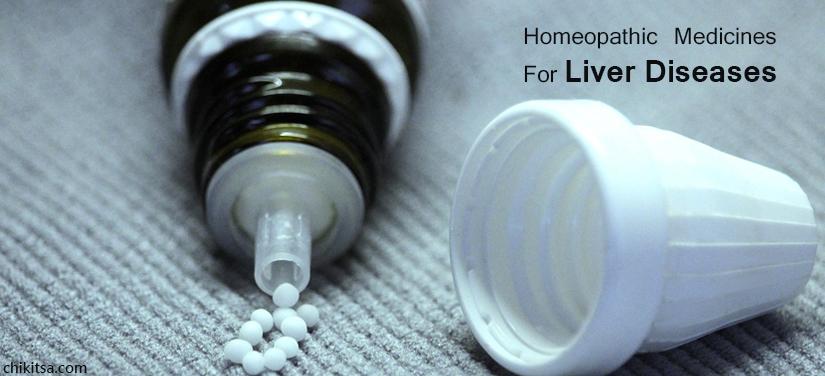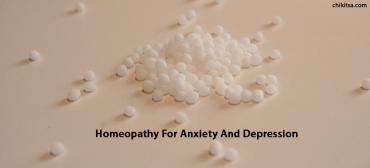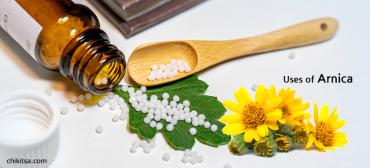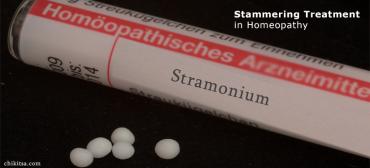Homeopathic Medicine for Liver Disease And Its Side Effects

Homoeopathy is the most sought alternative system of medicine which is known to give wonderful, miraculous results for nearly all sorts of disease conditions. It works on the principle of “Like Cures Likeâ€, a theory which says that a disease can be treated by a medicine which shows similar signs and symptoms on proving.
It is a well known fact that homoeopathic medicines are diluted solutions. It is also said that these medicines either give good results or show no effect at all. This is the reason why in some parts of the world, homoeopathy is considered to have no real medicine powers but is only prescribed to give a placebo effect.
There are numerous proving and controlled trials to show that homoeopathy is an evidence-based science and not merely placebo or witchcraft, as it is often thought to be. Homoeopathy also observe its limitations when it comes to emergencies and surgeries.
Homoeopathic Medicines For Liver Diseases
Homoeopathic medicines offer excellent remedies for managing liver cirrhosis and other disorders of the liver like hepatitis, fatty liver disease and so on. Some commonly used homoeopathic medicines which have a specific action on the liver are
1. Chelidonium Majus
It is a prominent liver remedy covering all diseases caused due to dysfunction and enlargement of the liver. Jaundice due to the liver and gallbladder obstruction. Constant pain in the inferior angle of the right scapula is a chief guiding symptom for this remedy. Sluggish bowel movement due to impaired digestion and metabolism.
2. Lycopodium
This remedy is suitable for digestive disturbances after serious damage to liver function. Patient desires everything warm. Weakness and reduced functional power due to liver dysfunction. Stomach feels bloated even after a light meal. The sensitivity of the liver and swelling of the abdomen due to liver diseases. Most frequently used homoeopathic remedy for liver cirrhosis and hepatitis. Pain in abdomen going from left to right.
3. Nux Vomica
It is one of the most commonly used remedies for a wide number of ailments. It is mainly suitable for conditions occurring due to modern lifestyle. Complaints are those arising due to a sedentary lifestyle, mental strain, having too much beverages, tobacco, alcohol or coffee and stimulant drugs. The patient has alternate diarrhea and constipation. Diarrhea with jaundice is a guiding symptom to this remedy. The liver is swollen with soreness and stitching type of pain.
4. Phosphorus
This is again a polychrest remedy but with a remarkable action on the liver for liver cirrhosis, hepatitis and fatty liver. Patients complain of large yellow spots on the abdomen.
5. Lachesis
All complaints arising due to suppressed discharges. Sensitive liver region. Unable to tolerate anything around the liver region. Liver complaints in drunkards. Varicosities due to impaired liver function.
6. Carduus Marianus
This remedy has a marked action on the liver and portal circulation. Useful for liver symptoms arising due to abuse of alcohol. Useful in liver diseases causing diabetes, weakness, swelling and hemorrhages. Indicated for influenza when the liver is affected. Cirrhosis of the liver with jaundice and swelling. Reduced appetite and vomiting of green, acidic fluid.
7. Chionanthus Virginica
A prominent remedy for jaundice and gallstones. Jaundice along with stoppage of menses in women. Enlarged spleen and liver. The abdomen is sore, enlarged with jaundice and constipation. Stools are yellow and clay-colored.
8. Myrica
This remedy has a marked on the liver and mucous membranes of the body. Patients complain of dull pain around the liver with jaundice. Weakness and sinking feeling in abdomen and fullness in the stomach and abdomen immediately after a meal. Yellow discoloration of skin with a sensation of something crawling under the skin and itching.
9. Leptandra Virginica
This remedy has a marked action on the liver. Liver affection in malaria. Weak portal circulation. Aching in region of liver extending to the spine. Clay colored stools and hemorrhages due to liver dysfunction.
10. Ptelea Trifoliata
This remedy has a remarkable action on the liver and digestive system. Heaviness and aching in liver region, worse from lying on left side. The liver region is swollen, sore and sensitive to touch. Pain in upper and lower limbs associated with stomach and liver complaints. Impaired digestion and an atomic state of the stomach.
11. Magnesium Muriaticum
This remedy has a specific action on liver diseases causing constipation. Indicated for chronic affections of the liver with symptoms worse after meals.
Side Effects Of Homoeopathic Medicines On Liver and Other Organs
On the other hand, rarely though, certain side effects have also been reported after taking the prescribed homoeopathic medicines.
- Since homoeopathic medicines are made from plant, animal, chemical, synthetic and mineral sources, it is possible that some amount of active ingredients of these substances will be present in the diluted solution of medicine.
- These active principles can cause an allergic reaction to occur or may have long-term harmful effects upon vital organs of the body like heart, kidneys and liver.
- The side effects of homoeopathic medicines on the liver could be attributed to a fault in the process of preparing medicines and manufacturing them or in dispensing them.
- Side effects of homoeopathic medicines on the liver could also be if the medicines are contaminated during preparation or when being dispensed.
- Liquid forms of homoeopathic medicines have an alcohol base. This is the reason dilutions are rarely given directly. They are often dispensed by mixing them in globules or the “sugar pillsâ€. Long-term consumption of these liquid dilutions can also be responsible for side effects on the liver.
- A mild aggravation of symptoms in homoeopathy is called the “Homoeopathic Aggravationâ€. This reaction of your body towards the medicine could be more than a simple increase in symptoms. It could also be a potential allergic reaction. This should be immediately reported to your homoeopathic clinician.
- Homoeopathic medicines, if taken in unmonitored, large doses, can cause serious side effects. In Homoeopathy, this would be called proving the drug.
- Another reason for aggravations or observed side effects of homoeopathic medicines can also be seen in highly sensitive patients – those who seem to react to every medicine they take. Such individuals are referred to as idiosyncratic.
These side-effects of homoeopathic medicines are that it can be easily antidoted and are not as harmful as the drug reactions observed after taking allopathic medicines. Once the medicine is stopped and anti-doted, the aggravated symptoms seem to disappear completely within a short period of time.
Another principle followed by this system of medicine is an “Individualistic†approach towards every case of a disease. No two cases are assumed to be the same and there is often a different medicine for two people having the same disease. Because of this, there is no standard format for prescribing medicines. The prescription and dose need to be highly accurate in order to get only the desired results. This individualistic approach probably gives an upper hand to homoeopathic medicines in cases of chronic diseases. It also ensures that the risk of having side effects of homoeopathic medicines on the liver or on any other organ is minimized.
The liver is like a power-house of our body. Everything that we consume is metabolized in the liver. The liver also produces a lot of enzymes and components which ensure normal functioning of the entire body including our vital organs. Any deviation in the normal functioning of the liver can cause problems right from digestion and metabolism to defects in synthesizing enzymes and to even elimination of waste substances from the body. If homoeopathic medicines are not prepared well, having the presence of active ingredients of their primary sources, the liver will not be able to metabolize and excrete them from the body.
It is also important to consult a qualified homoeopath first before taking medicines read out of the internet. these remedies above are just a glimpse of what homoeopathy has to offer to the field of medicine. There are more than 4000 prove remedies in homoeopathy. It is advisable to not replace your regular medications with homoeopathic medicines. It can be used in adjunct to your regular treatment. However, there is no evidence which shows drug interactions between homoeopathic and conventional medicines.











